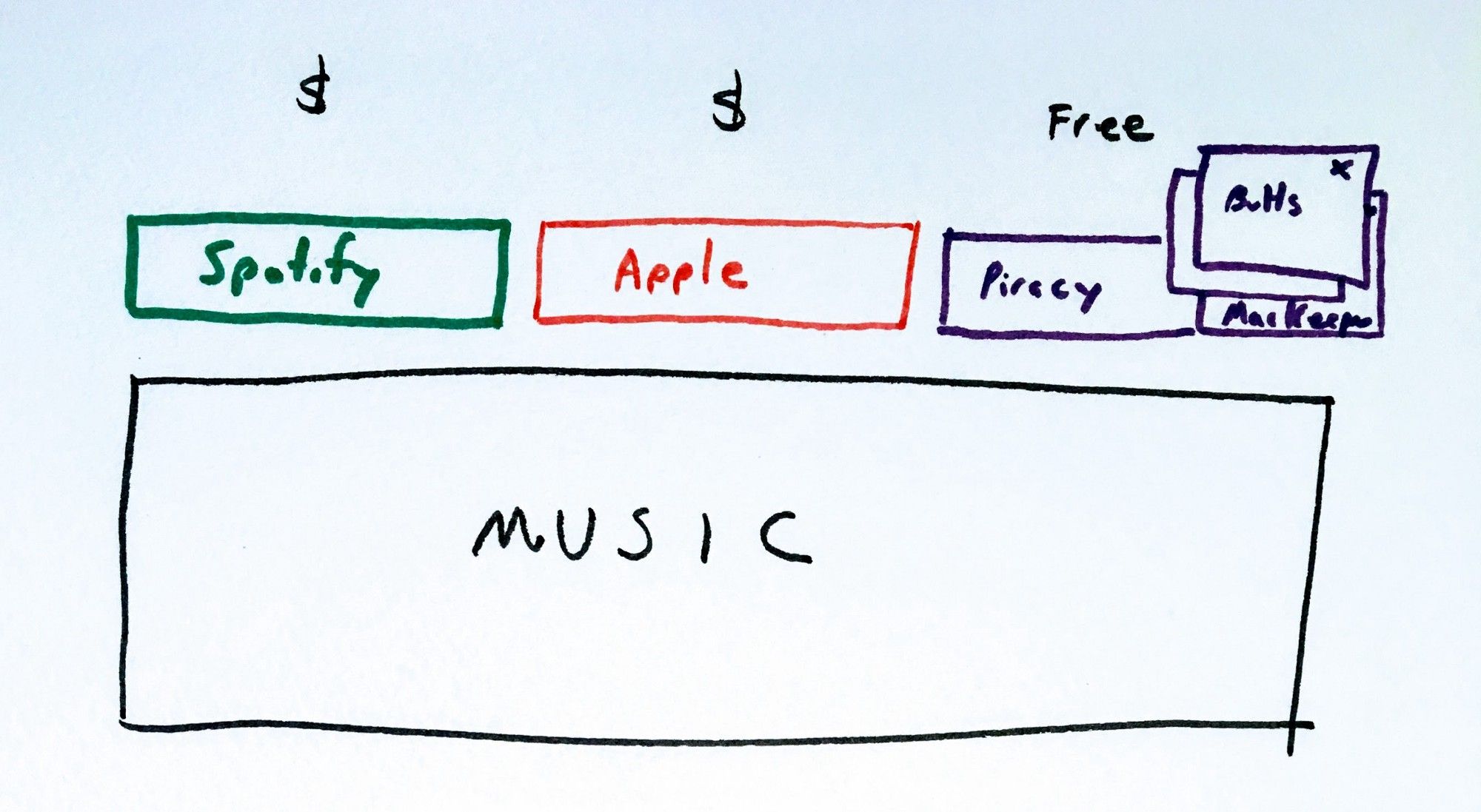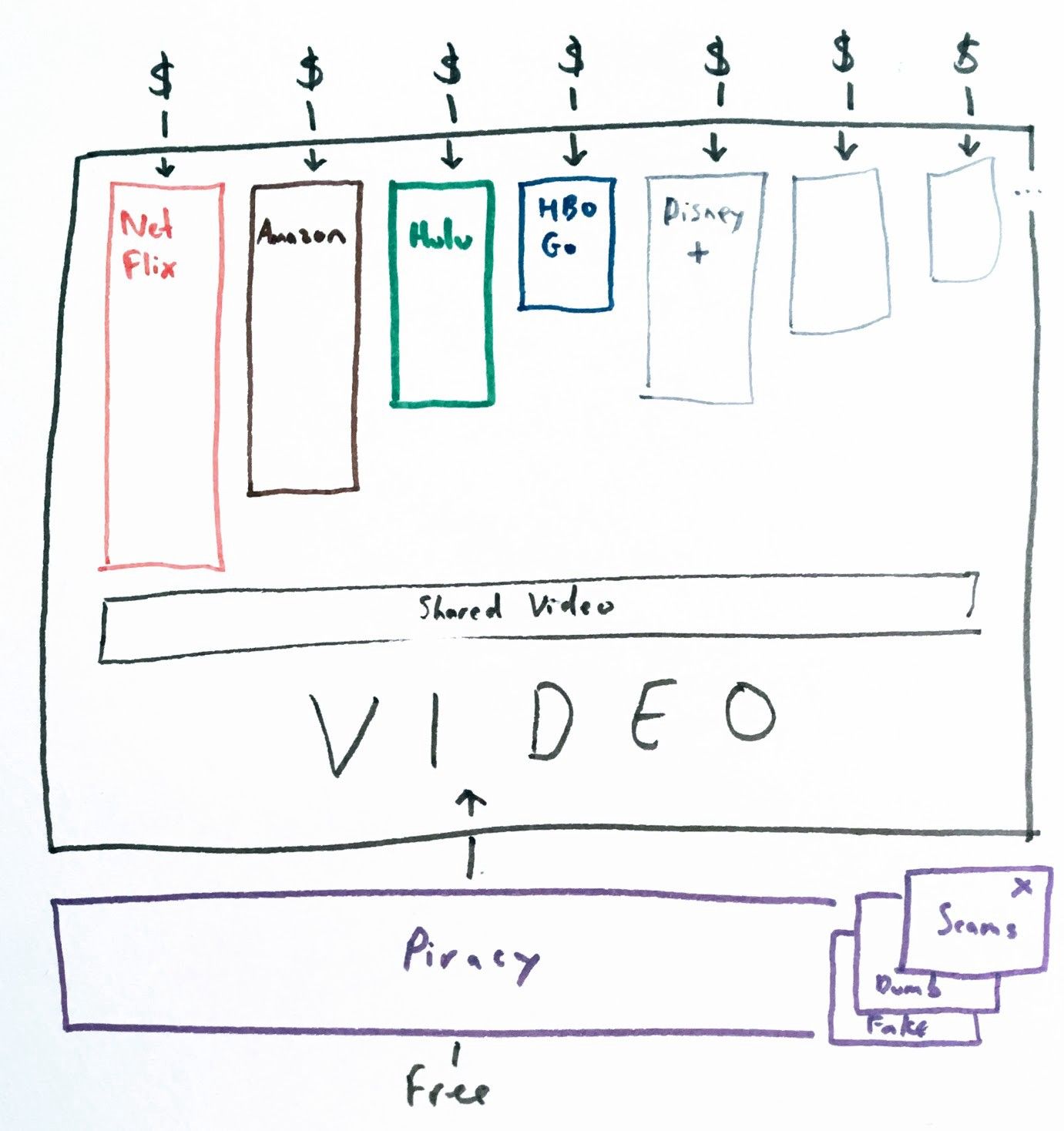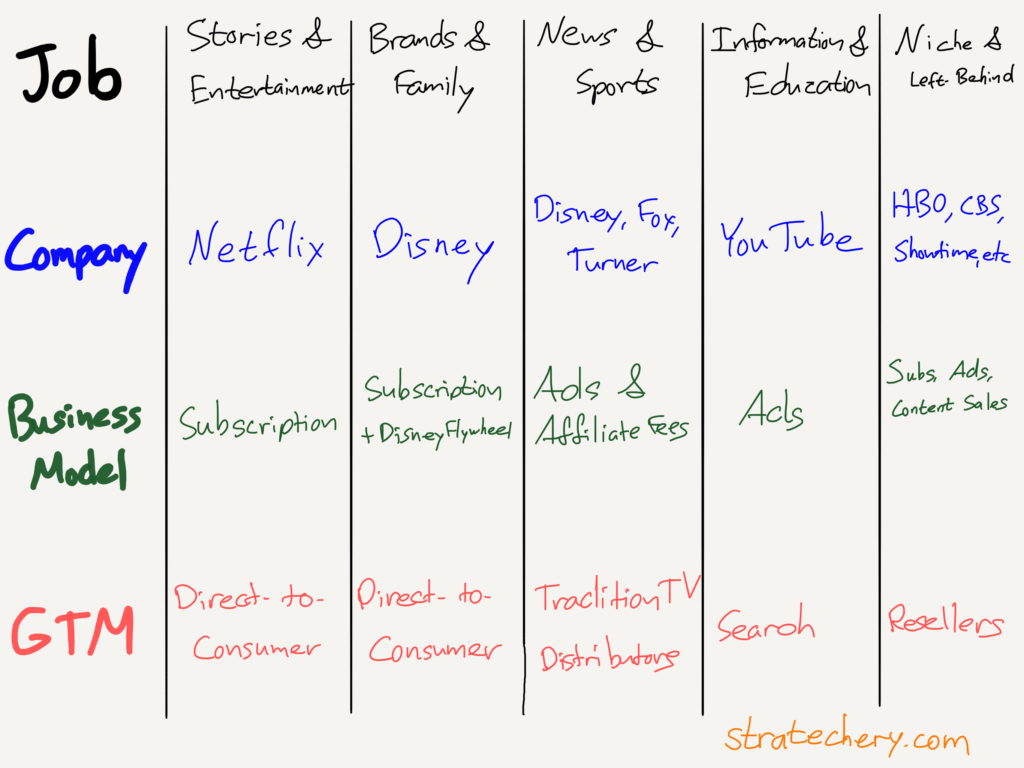Why I Still Pirate Video
It’s not me. It’s the business model

Recently I found myself torrenting Good Omens. But then my wife reminded me that we pay for Amazon Prime. I was pirating content that I had already paid for. Why was I doing this?
I like paying for content, and I would never pirate music, so why am I still pirating video? The answer I think is in the different business models.

Streaming Music
Streaming music services do not produce music. You pay them and they give you a nice interface to access music, but they don’t produce the music themselves. Both Spotify and Apple Music have mostly the same songs, they compete on price and curation and other things, but as a consumer I can buy either service and generally access ‘music’.
When music services do try exclusivity, it often leads to piracy. As an example, when Kanye West released Life Of Pablo exclusively on Tidal, it boosted app downloads but also boosted piracy.
According to TorrentFreak, The Life of Pablo was illegally downloaded on BitTorrent and other piracy sites by some 500,000 people within a single day of its release. Those sky-high numbers are “something we haven’t seen with a music release before,” TorrentFreak noted. (QZ)
People don’t pirate music anymore because the user experience of the paid services is so much better. You pay one service and you can access music without downloading it, without curating it, and it works on multiple devices and speakers and is amazing. No one pirates music anymore because why.
That’s not some grand ethical choice people are making, the business model just drives that behavior.

Streaming Video
Streaming video is very different. You pay a streaming service and they give you access to their content, but none of them give you access to ‘video’ in general. They do produce content, and there’s very little overlap between the services. In fact the whole business model is based on exclusives.
This is of course fertile ground for piracy. Since streaming services are effectively channels, the only way to get the ‘TV’ experience is to pay for them all individually, or just pirate whatever you want. The UX of piracy remains garbage, but there is no paid option that competes on curation and usability.
Thus people continue to pirate video because the business model encourages it. That’s why I pirated Good Omens. I couldn’t even remember that it was on Amazon Prime (which I do pay for), and it was just simpler to torrent it. I’m happy to pay for content, but this fragmented business model makes me a criminal.
No one has attempted to create an overall ‘TV’ experience for consumers, so piracy remains a compelling back door.
In fact, the more streaming services that emerge, the worse any individual streaming service becomes. Disney+ makes Netflix worse because they’re pulling all the Marvel and Disney content out and making them exclusive. As every channel becomes an island, piracy becomes a more and more compelling option.
The Solution
Of course, piracy is bad. But not for the ‘ethical’ reasons people toss around. BitTorrent is actually amazing technology, like Blockchain except actually useful. The fact that we have a peer-to-peer networking preserving our cultures is actually great, anthropologically speaking.
Piracy is bad because the UX is garbage and the business model is dumb. Because peer-to-peer file sharing is illegal, no one can design a decent, centralized UX around it. You get dodgy sites on random corners of the Internet, funded by the most dodgy ads and pop-ups and sometimes outright spyware.
Of course, the world we live in is never going to give peer-to-peer a chance. What we’re left with is the existing streaming services, but as we’ve seen, their business models are nothing like music streaming at all. They are all competing for dominance, but that now seems impossible. Netflix had a head start, but then Amazon Prime came in with bundling (shopping + video) and Disney is coming in with its own must-watch exclusives. In the short term, we’re only getting more fragmentation, not less.
Some people have called for breaking up the streaming services and stopping exclusives. I don’t know how probable or wise that is, for the government to regulate something where the market forces haven’t really played out yet.

Stratechery has an interesting analysis which sees fragmentation along ‘jobs to do’, with Netflix and Hulu forming a Spotify/Apple type duopoly and eventually squeezing suppliers to work with them. But I don’t necessarily see that happening now. What’s happening now is more and more exclusives.
Netflix does not have a monopoly on stories and entertainment at all, and their window of opportunity is closing as content owners have begun building their own streaming platforms.
Personally, I think something should emerge that ‘bundles’ all of these services into something like a cable TV package, with a similar price point. From the user experience standpoint, what people actually want is one button they can press for everything — from dramas to news to sports — but the business model behind that is obviously complicated and, as yet, undefined.
Hence there’s always piracy. If you can click through pop-ups fast enough, you can get almost anything you want. If you want it to be simple, safe, and easy, however, that business model is still under construction. Perhaps you’ll be the one to build it. I’d subscribe.